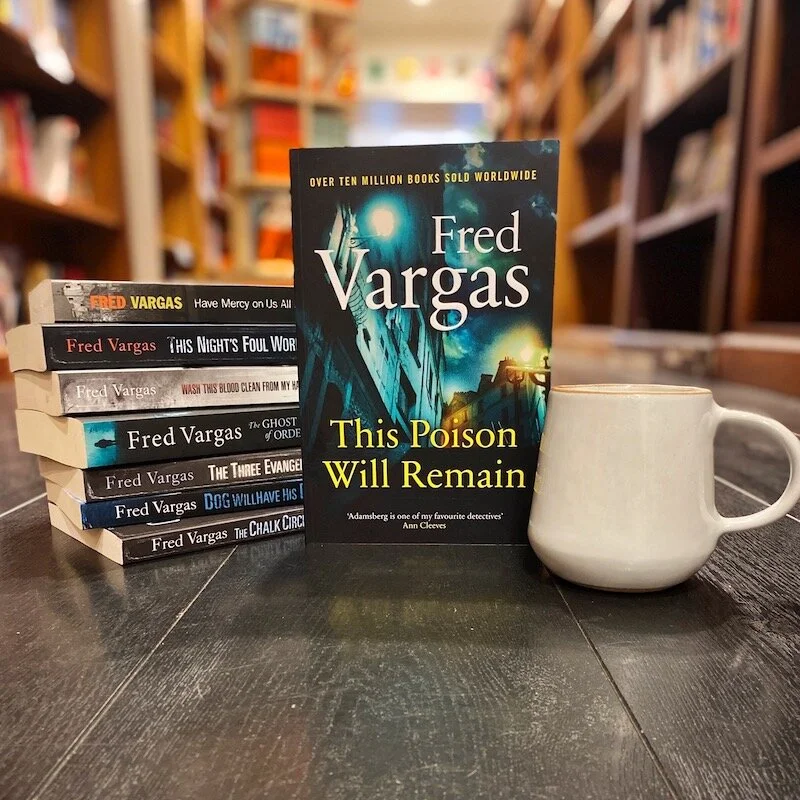The Crime Writing Genius of Fred Vargas
The Crime Writing Genius of Fred Vargas
by Jaye Chin- Dusting
Who is the greatest crime writer of all time? Having just been completely blown away by Fred Vargas’s latest book, This Poison Will Remain, I have to say this brilliant French crime writer gets my vote, hands down.
Besides being an author, Fred Vargas is also a historian and archeologist, and she writes her books from a place of vast knowledge. She brings to her Parisian stories vivid details which beguile and fascinate. Yet, this is not what compels me to hail her as the greatest crime writer of all time. As layered as her plots are, her characters plumb even greater depths of complexity.
The world-weary Commissaire Adamsberg started life as a mere detective in his first book, The Chalk Circle Man. Through the years we've witnessed his rise, his falls, his friendships (particularly with his right-hand man, the erudite Danglard), and of course his elusive love interest, Camille. All these characters and relationships are gifts, enriching backdrops to some of the most heinous and puzzling crimes to have ever befallen Paris.
In This Poison Will Remain, the ninth book in the Commissaire Adamsberg series, our hero investigates after the apparently accidental deaths of three elderly men who are bitten by spiders. His suspicions lead him to the La Miséricorde orphanage in the south of France and the scene of a historic crime. I was completely immersed in the various meanings of the word 'recluse'. From the nauseating discomfort of the not-so-harmless recluse spider, and its feasibility as a murder weapon, to the cloistering of medieval quasi-nuns, women walled up for life in stone cells in martyrdom.
Having waxed lyrical about reading each book and watching Adamsberg’s development from the very start, it actually doesn’t matter if you decide to start with This Poison Will Remain. As with all the best writers, Vargas writes with enough detail that you'll quickly learn all you need to know. But when done, I dare you to not go right back to the beginning. You will be rewarded a hundred-fold. The sophistication with which Vargas relates these stories is without peer, earning her multiple International Dagger Awards. Sian Reynold’s translation of Vargas's native French into English is remarkable only in that the richness in dialogue, nuance and precision is uncompromising.
If jumping straight into a series nine books deep and counting feels a little too much for you, there is also the Three Evangelists Trilogy. Here we meet three quirky Frenchmen all living in a shared house set-up, each with his own strengths. While these books were originally written in the early to mid 90s, the English translations were only released this past decade. Start with the first book, The Three Evangelists, or the latest, The Accordionist. These books are a little lighter, the three evangelists carry a little less baggage than my beloved Commissaire Adamsberg, but their tales are nevertheless gems of crime-writing fiction.
Not much left to say, except you can thank me later!


